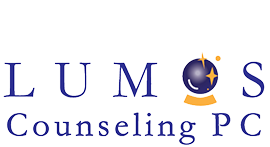Depression and anxiety are often associated with one another and for a good reason. Anxiety disorders are the most common mental illness in America, affecting approximately 18 percent of the population. Depression is the leading cause of worldwide disability. So then, how do you know if you have anxiety or depression?

Depression and anxiety counseling can help you break through your depression or anxiety and help you learn to manage it healthily. Read on to learn more.
Counseling for Depression and Anxiety
If you are asking yourself, “How do I know if I have depression or anxiety?” you are not alone. It is not wise to self-diagnose, so seeking professional counseling in the first step in deducing which you have, if at all.
Both depression and anxiety disorders stem from several risk factors, including genetics, personality, brain chemistry, and life events.
Some therapy candidates with undiagnosed and untreated depression and anxiety might self-medicate with substances. Alcohol and depression counseling considers the whole picture and any interconnectedness.
With a focus on underlying issues, therapy can peel back the layers that trigger anxiety.
Online Counseling for Depression and Anxiety
Asking yourself, “How do I know if I have depression or anxiety?” may be the first step in understanding you have a problem to address. For therapy to work you have to be a willing participant and know there is a way to get better.
If you are not close to a counselors office or the thought of going to a therapist makes you nervous, consider online counseling for depression and anxiety. You can attend your session from anywhere by phone or a secure video conference. Further, you can maintain an otherwise normal schedule without driving far or interrupting your day.
Top 5 Ways: How Do I Know If I Have Depression or Anxiety?
While depression can lead to anxiety and anxiety can lead to depression, it is not inevitable that both will be concurrent. Every patient is different, and symptoms can manifest in varying levels or not at all, below is a quick checklist to determine if it is worth speaking to a professional.
Signs of Depression
- Depressed mood
- Lack of interest in normal activities
- Changes in appetite
- Insomnia or hypersomnia
- Lethargy
- Feelings of worthlessness or guilt
- Trouble focusing
- Suicidal thoughts or behaviors
Signs of Anxiety
- Excessive worry
- Restlessness
- Easily fatigued
- Trouble focusing
- Irritability
- Restless sleep
- Muscle tension
Again, symptoms may vary or manifest differently—however, some of the symptoms are similar in both anxiety and in depression.
How to Overcome Anxiety or Depression
Therapy is a highly effective way to manage and overcome anxiety and depression. As with any mental wellness program, a routine is just as important as the desired end goal. Some of the goals of therapy include:
- Becoming healthier
- Stopping cigarettes, alcohol, and drugs
- Overcome fears and insecurities
- Identifying things that worsen your depression
- Elevating relationships with friends and family
- Understand why something bothers you and determining how to cope
For more information in determining if you have depression or anxiety, and counseling services available to you, contact Lumos PC Counseling today.

